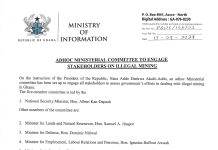1. What are the benefits of getting a COVID-19 vaccine?
COVID-19 is easily transmitted and can lead to serious illness and death, even for people who are young and healthy.
Vaccination with COVID-19 vaccine complements the other known preventive protocols in the reduction of risk of infection. Anyone who gets vaccinated helps to protect him or herself, their families and the entire community.
Vaccines prepare your body’s natural defenses – the immune system – to recognize and fight off the virus that causes COVID-19.
Scientists are studying whether people who get vaccinated for COVID-19 would also be less likely to pass the COVID-19 virus on to other people. If that’s the case, getting vaccinated could be a powerful way to not only protect yourself, but also your entire community.
2. How will we know if COVID-19 vaccines are safe?
COVID-19 vaccines go through rigorous, multi-stage testing process, including studies that involve tens of thousands of people. These trials, which include people at high risk for COVID-19, are specifically designed to identify any common side effects or other safety concerns.
At the moment, vaccines available for COVID-19 have efficacy of between 60-94%. The World Health Organization guidance is that COVID-19 vaccines should demonstrate at least 50% efficacy against severe disease.
3. Have COVID-19 vaccines been approved for use in Ghana?
As at 24th February, 2021 Food and Drugs Authority (FDA) has given Emergency Use Authorization to two COVID-19 vaccines: (i) Sputnik V vaccine, Russia; and (ii) Covishield is the AstraZeneca vaccine produced in partnership with Serum Institute of India.
The FDA, a WHO Maturity Level 3 regulatory agency, has reviewed both of these vaccines and concluded that they are efficacious, safe and of good quality. Additional approvals made by FDA will be communicated to the public accordingly.
4. When will COVID-19 vaccines be ready for distribution in Ghana?
The COVID-19 vaccine will be distributed in phases in Ghana. The first phase will be ready by March, 2021.
5. Will there be enough COVID-19 vaccines for everyone? If not, who will get them first?
It is likely that the supply of COVID-19 vaccines will be limited at first, which means not everyone will be able to get vaccinated right away.
As doses of COVID-19 vaccines become available, they will be provided first to those at highest risk. The specific groups that are eligible for the first doses of COVID-19 vaccines may vary depending on the vaccine. However, initial groups will likely include frontline health and care workers at high risk of infection, older adults, and people at high risk of death because of underlying conditions like hypertension, heart disease, diabetes and asthma. Once adequate doses become available, we will encourage all those who qualify to get vaccinated.
6. Will vaccines authorized in Ghana be as effective as the ones in other countries?
Yes. The COVID-19 vaccine authorized in Ghana will be as effective as any vaccine authorized by other countries. This is because various phases of clinical trials data reviewed by the FDA showed that the vaccines are safe and efficacious.
7. Will COVID-19 vaccines provide long-term protection?
The duration of protection following vaccination is not certain now. Studies are ongoing to measure the duration of protection. So far, some countries have documented duration of protection of more than five months.
8. If I get a COVID-19 vaccine, will I still need to take other precautions such as physical distancing, wearing of mask and other?
Yes. Stopping a pandemic requires using all the tools available. Vaccines strengthen your immune system so that it is ready to fight off the virus if you are exposed. Other steps, like masks and social distancing, help reduce your chances of being exposed or spreading the virus. Together, vaccination against COVID-19 and recommendations on how to protect yourself and others will provide the best protection against COVID-19.
9. If I have had COVID-19 before and have recovered, do I still need to be vaccinated with a COVID-19 vaccine when it is available?
Yes. Due to duration of protection provided by infection still not fully established, it will be important to receive the vaccine to build the body’s ability to fight any future infection.
10. How quickly could COVID-19 vaccines control the pandemic?
We don’t know how quickly COVID-19 vaccines could control the pandemic. That will depend on many factors, such as the level of vaccine effectiveness; how quickly they are approved and manufactured; how many people get vaccinated; and the continuation of measures such as physical distancing and mask use. In the UK, with 20 million people vaccinated, the pandemic is said to be about 80% controlled.
11. How can I learn more about COVID-19 vaccines?
Everyone is encouraged to rely on reputable and authoritative sources of information, such as health care providers and public health officials, to help them make informed choices and stay up to date. You can get the latest information about COVID-19 vaccines from the World Health Organization and Ghana Health Service websites (www.who.int /www.ghanahealthservice.org).
12. How is it possible to develop a safe vaccine so quickly?
While COVID19 vaccines have been developed faster than any other vaccine in history, safety was just as much a focus as in any other vaccine development. Scientists prioritized COVID19 vaccine development because of the global emergency.
The vaccines that are now being reviewed and approved by regulatory bodies have been through the same amount of testing and safety processes as other vaccines. The speed in the development of COVID-19 vaccine has also been made possible because of the availability of new tools and technologies used in vaccine development.
13. What is vaccine confidence?
Vaccine confidence is the belief that vaccination, and the providers, private sector, and political actors behind it, serve the public’s best health interests. Like ‘hesitancy,’ it is highly variable and rooted in political economic context. This will affect the populations’ trust in vaccines.
14. Can the vaccine give me COVID-19?
No. You cannot get COVID 19 from the vaccine. Approved vaccines being administered does not contain any live virus that could cause COVID-19.
15. How quickly does the vaccine work?
Your immune system needs to generate a response, so generally the protection from the virus starts after about seven days.
16. Is it safe for me to get a COVID-19 vaccine if I would like to have a baby one day?
Yes. People who want to get pregnant in the future may receive the COVID-19 vaccine. Based on current knowledge, experts believe that COVID-19 vaccines are unlikely to pose a risk to a person trying to become pregnant in the short or long term. Scientists study every vaccine carefully for side effects immediately and for years afterward.
The COVID-19 vaccines are being studied carefully now and will continue to be studied for many years, similar to other vaccines. The COVID-19 vaccine, like other vaccines, works by training our bodies to develop antibodies to fight against the virus that causes COVID-19, to prevent future illness.
There is currently no evidence that antibodies formed from COVID-19 vaccination cause any problems with pregnancy, including the development of the placenta.
In addition, there is no evidence suggesting that fertility problems are a side effect of COVID-19 vaccine. People who are trying to become pregnant now or who plan to try in the future may receive the COVID-19 vaccine when it becomes available to them.
17. What is Emergency Use Authorization (EUA)?
This is when a medical product is authorized for use during a pandemic to ensure timely access to much needed health products. The objective is to make medicines, vaccines and diagnostics available as rapidly as possible to address the emergency, while adhering to stringent criteria of safety, efficacy and quality. This authorization is given for the duration of the pandemic. In the EUA manufactures are requested to submit any additional documentation on the product as and when it becomes available.
EUA is given only when the National Regulatory Authority (NRA) is satisfied that the product has met all efficacy, safety and quality specifications.
18. Do the COVID19 vaccines have adverse reactions?
Vaccines may cause adverse reactions. Most of these are mild and short term, such as pain at the injection site, fever, tiredness or a headache. Many people don’t get any side effects. However, a few may feel slightly unwell because their immune system is responding to the protein, but this is not a COVID-19 illness and the vaccine can’t give you COVID-19.
19. How can one report of adverse reactions to the COVID-19 vaccine
In the unlikely event of an adverse reaction such as fever, swelling of the injection site or fever after receiving the vaccine, you can report to the nearest health facility for treatment and also send a report to the Med Safety App which is freely available in Google Play and App Store.
20. What to do to keep yourself and others safe from COVID-19?
- Maintain at least a 1-metre distance between yourself and others to reduce your risk of infection when they cough, sneeze or speak; maintain an even greater distance between yourself and others when indoors.
- Regularly wear a face mask to cover your nose, mouth and chin.
- Clean your hands before you put your mask on, as well as before and after you take it off, and after you touch it at any time.
- Proper disposal of used masks is essential.
- Don’t use masks with valves.
- Get the COVID-19 vaccine
Source: (GHS)
For further information, call the following Numbers: 0509497700/0558439868
FDA Hotlines- 0551112224/5

























